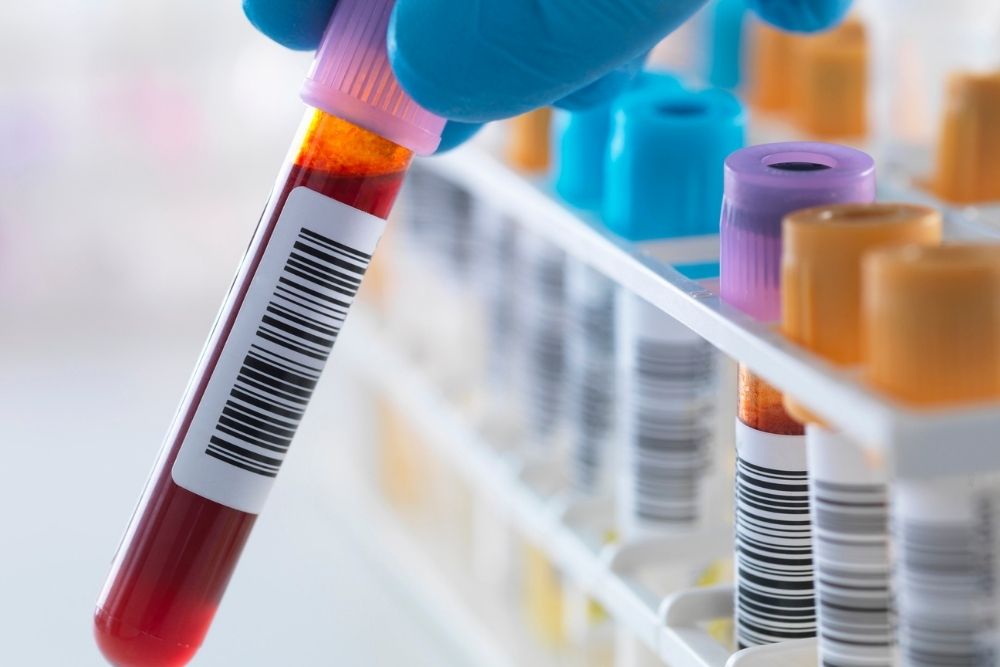Common White Collar Crimes and Defenses
March 31, 2025

How Should You Respond to CO False Domestic Violence Allegations?
What Is a Sexually Violent Predator in Colorado?
Posted by: Jacob E. Martinez
Category: DUI
When you are pulled over for a DUI, you may expect to get a breath test by the police. This will test your blood alcohol content and demonstrate if you are above the legal limit of 0.08 percent. But what many people don’t know is that you can also opt to have a blood test done to determine your blood alcohol content.
Which is better: blood or a breath test? The truth is, there is no wrong or right answer to this question. Both a breath test and a blood test have good and bad aspects to them when you’re facing a DUI.
Here is what you need to know about blood and breath tests in Colorado. We will help you understand the differences as well as which one may be the right one for you – in case you ever need to know!
There are pros and cons to a breath test for alcohol if you are suspected of a DUI in Colorado. The main pros to a breath test include that it is:
What isn’t really understood by most people is that a breath test doesn’t really test the amount of alcohol a person has in their blood. Instead, what they analyze is the trace amount of alcohol in a person’s breath to what is an equivalent blood alcohol content. This is also called a partition ratio.
The problem is that the partition ratio used in Colorado by the police isn’t really the average. Every person’s body absorbs alcohol differently, including how it is absorbed in the lungs. People have different partition ratios, and they can change based on many factors, such as body temperature and even the temperature outside.
Colorado’s law allows a person to show evidence in court about unique partition ratios, which can help convince a jury that your blood alcohol content as measured by a breath test may not have been accurate. Introducing this element of reasonable doubt can help a case.
There are certain advantages to choosing a blood test if you are pulled over for suspected drunk driving, such as:
Obviously, blood tests are more involved than a breath test, and there are more opportunities for the sample to be contaminated or mishandled by the police in the process. There are problems faced by the police when collecting blood samples, too, such as:
However, you can use these mistakes to your advantage in your defense should they occur.
Probably the biggest disadvantage to a blood test is that it takes time between when you are pulled over and when you are tested. In that time, your blood alcohol content can actually go up. So, you could have been within the legal limit while driving but not when tested.
No matter which method you ultimately choose, if you’re facing DUI charges, make sure that you have an experienced lawyer on your side who can guide you through it.
About the Author:
Denver-based criminal defense and DUI attorney Jacob E. Martinez is a knowledgeable and experienced litigator with a record of success providing innovative solutions to clients facing criminal charges of any severity. Mr. Martinez has been recognized by countless legal organizations for his exemplary defense work, including Avvo, Best DWI Attorneys, Expertise, Lawyers of Distinction, The National Trial Lawyers, and others. He was also named one of the 10 Best in Client Satisfaction in Colorado by the American Institute of Criminal Law Attorneys for 2020, and is Lead Counsel rated.
Jury Trial - Not Guilty
Jury Trial - Not Guilty
Arapahoe 1st Degree Assault/Vehicular Assault
Jury Trial - Not Guilty
Denver Domestic Violence Assault Case
Jury Trial - Not Guilty
Denver D.V. Assault
Jury Trial - Not Guilty
Denver Careless Driving Resulting in Death
Jury Trial - Not Guilty
Jefferson County Felony Menacing
Jury Trial - Not Guilty
Adams County DUI
Jury Trial - Not Guilty
Jefferson County DUI
Jury Trial - Not Guilty
Jefferson County DUI
Jury Trial - Not Guilty
Jefferson Vehicular Assault/DUI
Jury Trial - Not Guilty
Jefferson County DUI
Jury Trial - Not Guilty
Boulder County DUI case
Jury Trial - Not Guilty
Arapahoe County DUI case
Jury Trial - Not Guilty
Adams County DUI case
Jury Trial - Not Guilty
Douglas County DUI case
Jury Trial - Not Guilty
Gilpin County DUI case
Dismissed
Broomfield County Probation Revocation case
Dismissal
Arapahoe County DUI case
Deferred Judgment
Arapahoe County DUI case
Deferred Judgment
Douglas County DUI case
Deferred Judgment
Larimer County DUI case
Deferred Judgment
Arapahoe County DUI Case
Deferred Judgment
Denver Felony Burglary Case
Deferred Judgment
Arapahoe County DUI case
Dismissed
Arapahoe County Protection Order Case
Dismissed
Golden Destruction of Property case
Dismissed
Jefferson County Protection Order case
Dismissed
Jefferson County Domestic Violence case
Dismissed and Sealed
Jefferson County DUI case
Dismissed
Denver Major Traffic Offense case
Dismissed and Sealed
Broomfield County Domestic Violence case
Dismissed
Summit County DUI Revocation
Dismissed
Denver DUI Revocation
Dismissed
Denver DUI Revocation
Dismissed
Denver DUI +.2 Involving Accident and Injury case
Dismissed
Denver DUI/Habitual Traffic Offender case
DISMISSAL
Denver District Aggravated Theft
Dismissed
Greenwood Village Assault case
Dismissal
Elbert County DUI
Dismissed
Arapahoe County Domestic Violence case
Dismissal
Jefferson County DUI
Dismissal
Denver Municipal Assault
Dismissed
Boulder County Domestic Violence Assault case
Dismissed
Wheat Ridge Assault case
Dismissed
Jefferson County DUI case, with 2+ Prior Convictions
Dismissed
Arapahoe County Domestic Violence case
Dismissed
Broomfield County Domestic Violence case
Dismissed with No Charges Filed
Jefferson County Felony Theft case
Dismissed
Arapahoe County Felony Theft case
Dismissed
Boulder County Felony Theft case

